Raise your hand if you’ve seen the term “hyaluronic acid” on at least one skin care product today!
Yep, chances are you’ve seen this hydrating ingredient just about everywhere. It’s not not just because it’s trendy…it’s because it’s necessary in almost everyone’s skincare routines! Yes, EVERYONE!
So yes, you may be familiar with hyaluronic acid, but do you know it’s lesser-known sister ingredient “sodium hyaluronate?”
Both hyaluronic acid and sodium hyaluronate are common hydrating and nourishing ingredients that can be found in serums, cleansers, toners and moisturizers! and while they may seem super similar, they’re actually very different! Let’s get into it.
What is Hyaluronic Acid?
Hyaluronic acid (HA) is two things:
- A glycosaminoglycan. This is a super fancy name for a vital naturally-occurring substance that’s part of the skin’s ability to stay youthful. As the MVP glycosaminoglycan in skin, hyaluronic acid works to keep every aspect of skin stable, safeguarded, and constantly renewed.
- A humectant. This means it draws moisture from its surroundings. Humectants are often found in water-based moisturizers, serums, and other leave-on skin care products because of their ability to help boost hydration for all skin types.
So what does HA do?
It moisturizes beyond comparison! Listen to this…
HA can hold up 1,000 times its weight in water. WHAT!
That’s probably the most shocking fact ever written in the history of this blog! If you think like me, you may be thinking “Okay, wow…isn’t that too much water for my skin?” Good news is HA is super smart and never over-hydrates your skin so you’re good there.
Due to it being super hydrating, HA is a great ingredient for anti-aging needs too! When we’re young, our skin can hold a lot of moisture, but as we age our skin isn’t so great at retaining hydration. This is why we see more sagging, wrinkles, and everything we all fight! Adding this hydration-packing ingredient into your daily skincare routine can prevent serious aging down the road.
What is Sodium Hyaluronate?
Sodium hyaluronate (SH) is actually derived from hyaluronic acid (hence why you see them interchanged so often!), but it is a salt-form. The perk of sodium hyaluronate is that it’s actually smaller molecular size than hyaluronic acid so it has a much easier time deeply penetrating the skin.
Since SH is in a salt form, it’s also less-likely to oxidize than it’s larger molecular counterpart.
What does sodium hyaluronate do?
TBH, this salty form of HA bascially does everything that hyaluronic acid does, except it permeates the skin a little easier! It can really get down deep in there, nestle in, promote hydration, and help your skin absorb other nutrients!
So is sodium hyaluronate better than hyaluronic acid?!
Answer: not necessarily! They’re both super beneficial to your skin and actually, they work best when used together. If you can find a product that has both of these hydrating super stars, you’ll be in good shape!
Good luck though, finding both of these in a product is really hard and usually super pricey!
That said, you’ll find that most skin care products have SH rather than HA because it is cheaper to create. Which isn’t necessarily a bad thing! It’s just a lot harder to find straight HA compounds!
Where are these ingredients naturally-derived from?
Since hyaluronic acid (HA) is a naturally-derived ingredient and sodium hyaluronate (SH) is extracted from HA, it’s important to know where it all starts! HA is most commonly derived from a plant fermentation process and is rarely derived from animals. Sometimes it can be derived from wheat so gluten-free friends – just be sure you’re checking your labels!
My vegan friends – when it is derived from animals, HA is derived from the combs of roosters (the red flesh at the top of their heads). It’s considered one of the best animal sources for HA. While that may creep you out, just know that hyaluronic acid is RARELY produced this way mostly because it’s very expensive.
If you’re ever not sure how a brand derives its ingredients – just ask!
Our Favorite Hyaluronic Acid + Sodium Hyaluronate Products
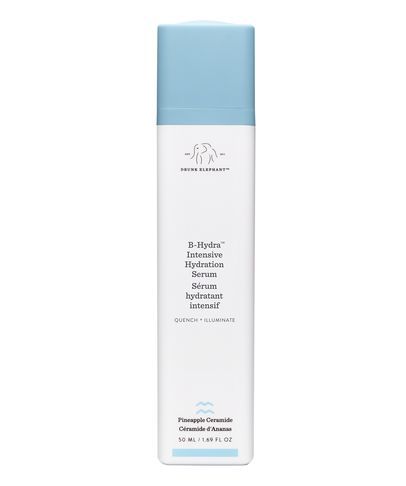
- Product: Drunk Elephant™ Intensive Hydration Serum
- Price: $52 full size
- Perks: Vegan, Cruelty-Free, Gluten-Free, No Essential Oils, No Formaldehyde, Fragrance-Free, No Parabens, No Phthalates
- Contains sodium hyaluronate.
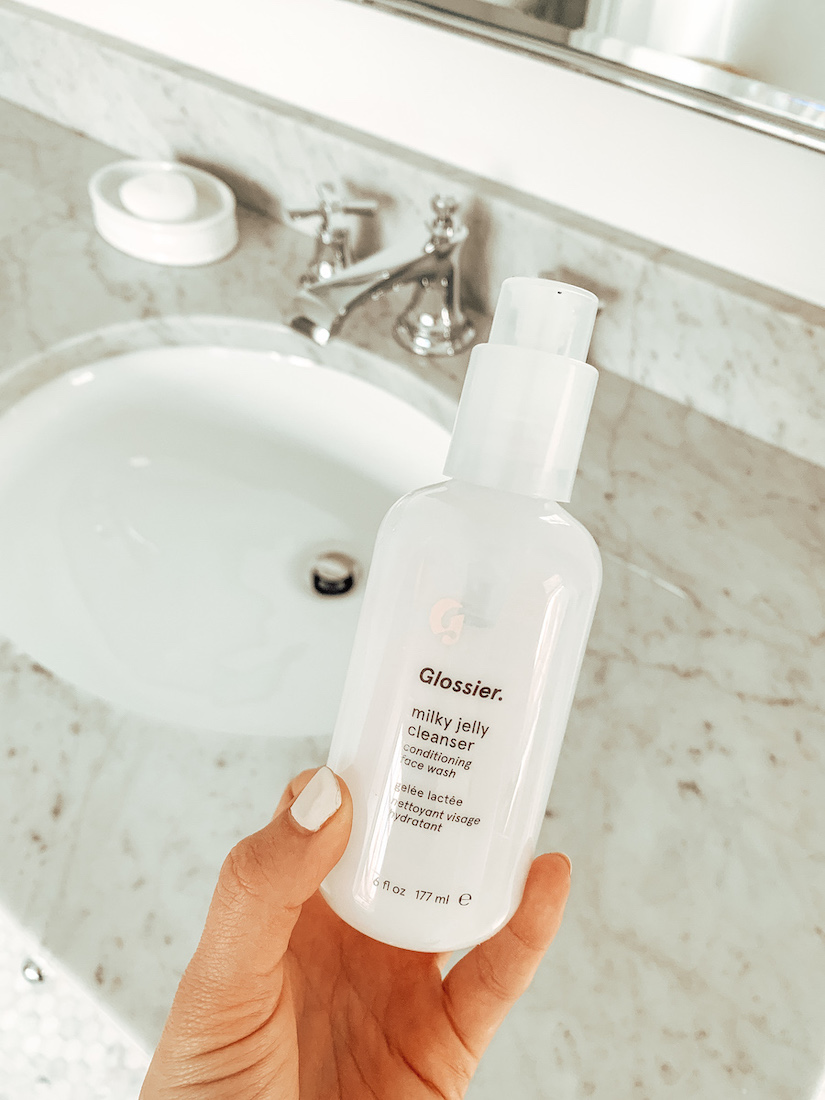
- Product: Glossier Milky Jelly Cleanser
- Price: $18 at Glossier.com
- Perks: hypoallergenic, dermatologist tested, safe for the eye area, ophthalmologist tested, appropriate for all skin types, soap free, paraben free, sulfate free, cruelty free, non-comedogenic, vegan
- Contains sodium hyaluronate.
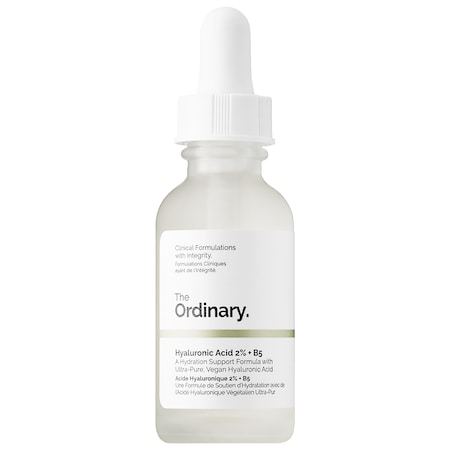
- Product: The Ordinary Hyaluronic Acid Serum
- Price: $6.80 at Sephora
- Perks: Vegan, cruelty-free, and formulated without oil, alcohol, silicone, nuts, and gluten.
- Contains sodium hyaluronate and sodium hyaluronate crosspolymer.
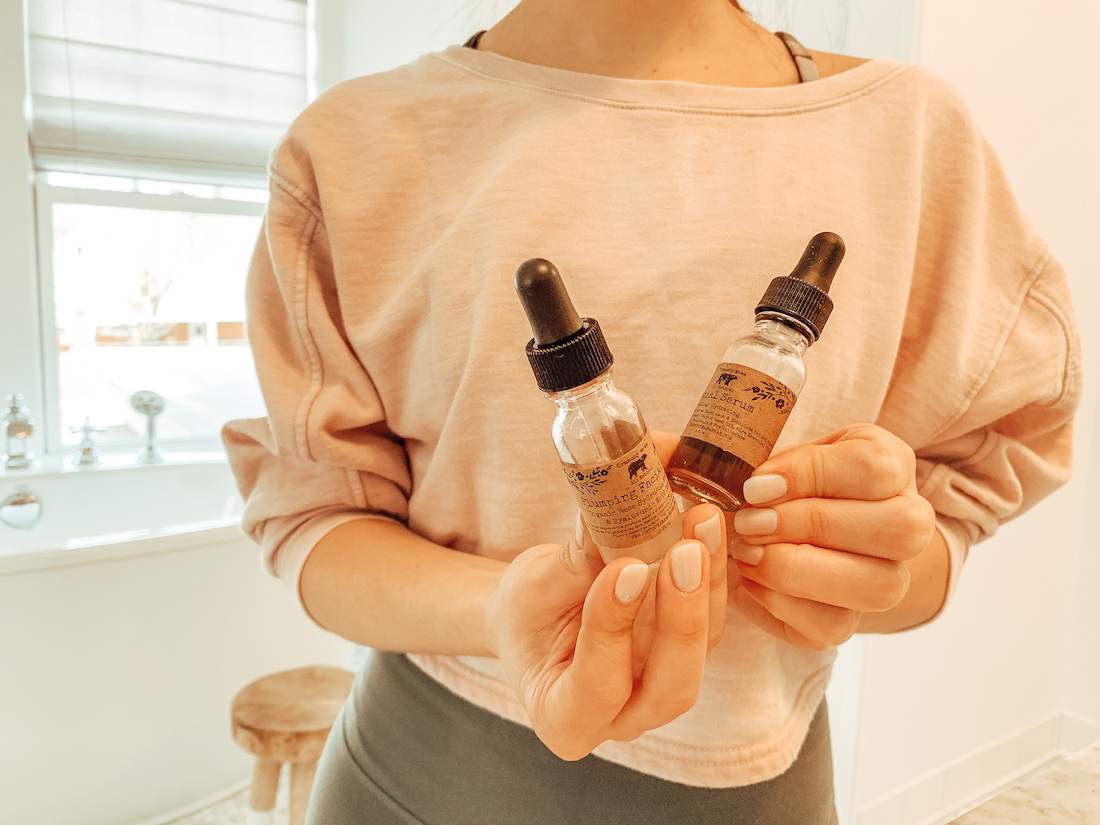
- Product: The Crunchy Mama Bear Plumping Facial Toner
- Price: $22
- Perks: Vegan, Toxin-Free
- Contains hyaluronic acid.
What are your favorite sodium hyaluronate or hyaluronic acid products?
Since there are so many products out there, the more we share our favorites with each other, the better chance we have of finding that perfect product. If you haven’t tried incorporating hyaluronic acid into your routine, you should! This ingredient is great for ALL skin types!
Let me know all your moisturizing thoughts below!


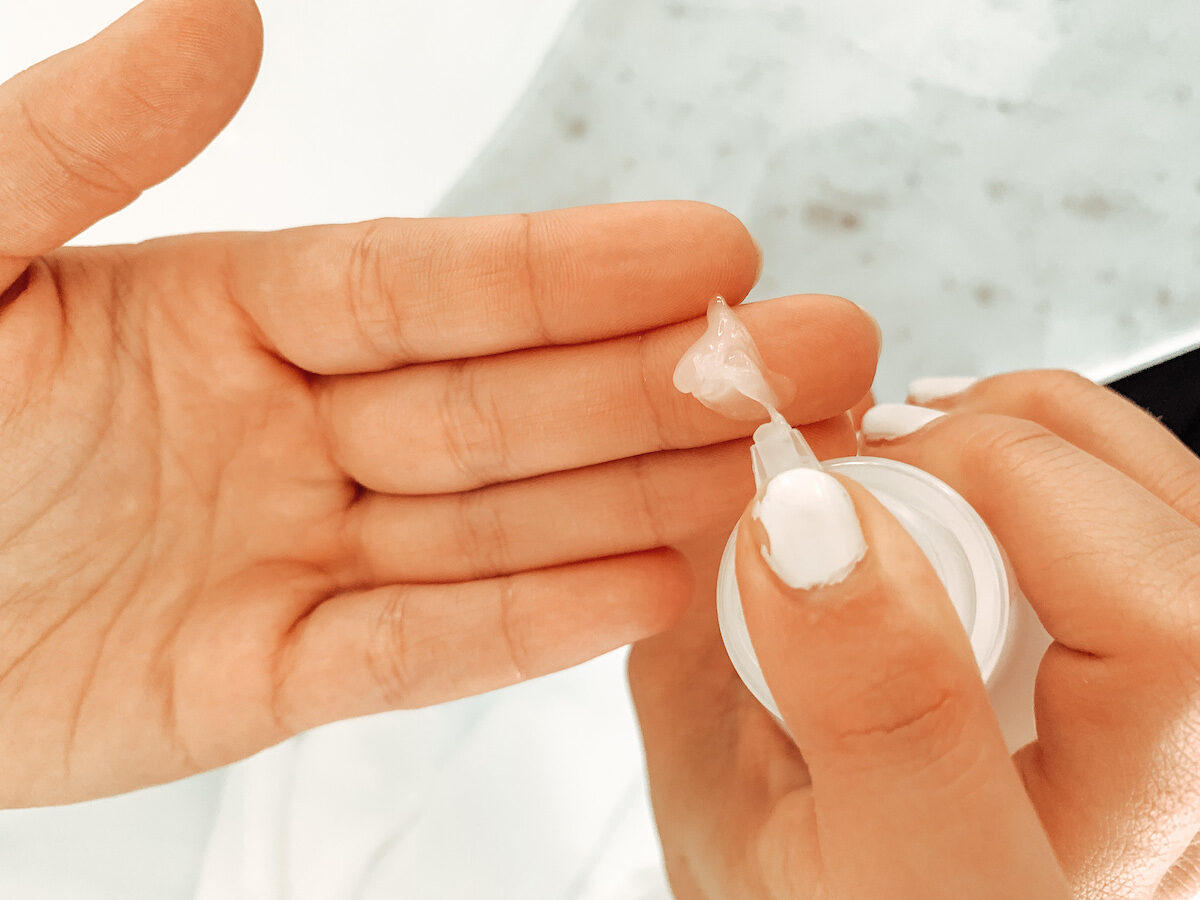
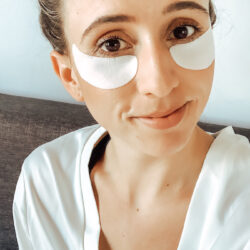




5 comments
[…] ingredients in an absorbable form to deeply penetrate into your pores! From vitamin C to hyaluronic acid to chemical exfoliants like AHA & BHA, serums are your best friend when it comes to a […]
[…] cream has both vitamin E and hyaluronic acid in it, meaning it’s like a major moisture bomb for your skin. If you have dry skin, this […]
[…] If your skin needs moisture and you’re not sure where to start, our advice will always be to start with hyaluronic acid! Hyaluronic acid can attract up to 1,000 times its weight in water. OMG right?! We’ll spare you more exciting details here, but if you want to learn more about hyaluronic acid, you’ll want to check out our ingredient breakdown post on it. […]
[…] Hyaluronic Acid […]
[…] Hyaluronic acid […]